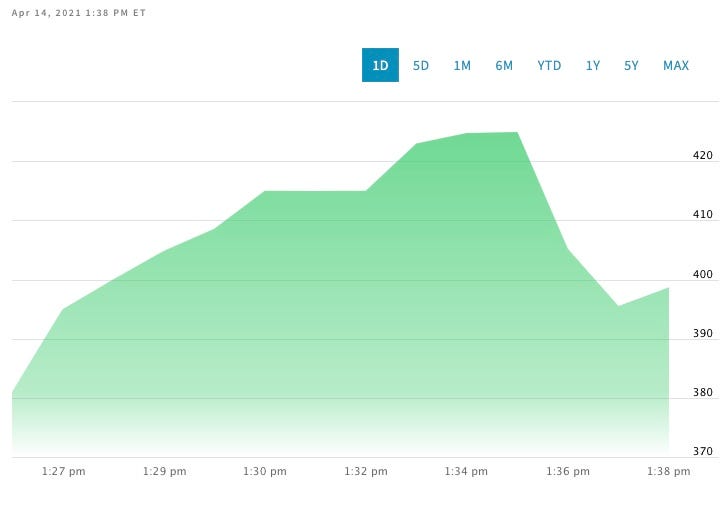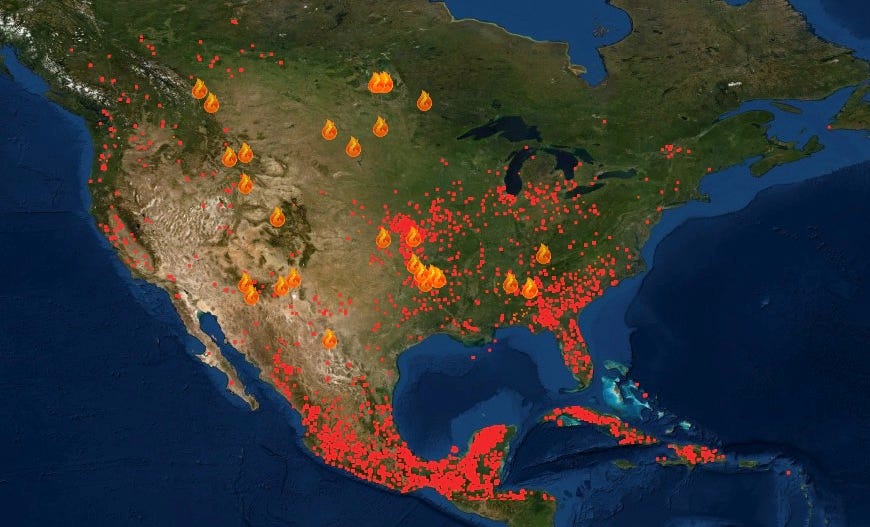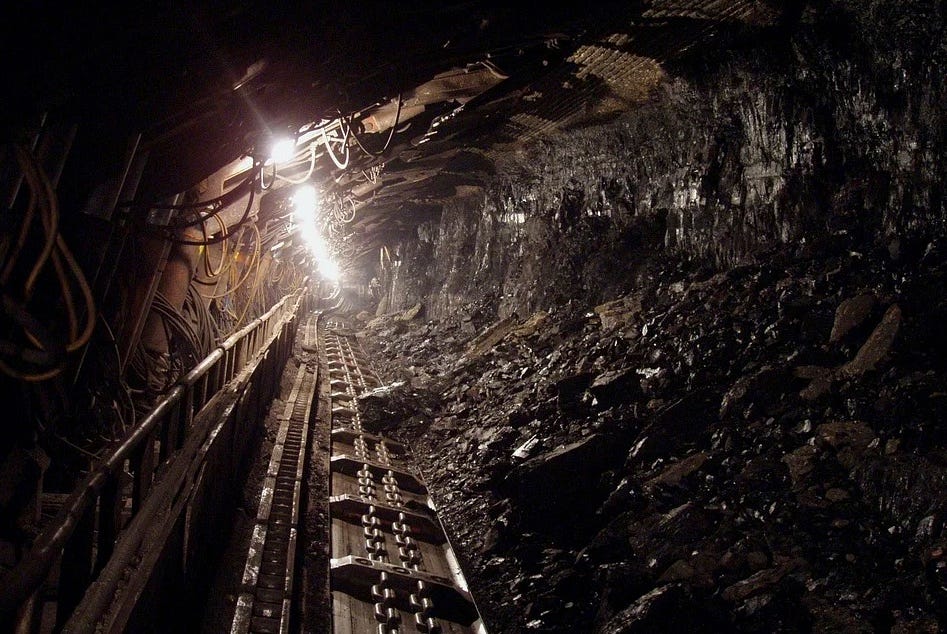Who will be climate's Coinbase? Plus, California blinks on fracking
Welcome to Callaway Climate Insights. Please enjoy, and sign up for our free 30-day trial to sample ALL of our news and analysis.
This week in wildfires: The Fire Information for Resource Management System reported five new incidents in the U.S. and Canada, four large fires contained, and 14 uncontained. Hot spots included Oklahoma, with eight fires, and Arizona, with three. The National Interagency Coordination Center reported on Tuesday that more than 60,000 acres burned.
In California this week, all eyes are on fire season. A bone-dry spring has provided sunshine for emerging Covid hibernators but tinderbox conditions in a state that usually doesn’t see major fires until autumn. Against this climate emergency, a state bill to ban fracking was defeated in early committee on Tuesday.
While California toots its climate horn whenever possible, the state is the 7th largest oil producer in the nation, and relies heavily on natural gas to power its electric grid through summer heat demands. It is a microcosm of the global debate between taking steps to reduce greenhouse gas emissions and preserving jobs and economies.
The financial preservations that sunk California bill SB467 will offer pale relief this summer when insurance companies get hit with wildfire claims, and then attempt to pass them along to utilities, energy companies, and even the state itself. Carbon released from the wildfires will overwhelm any emission reductions achieved through electric vehicles or solar power.
Climate change is an environmental emergency, an immigration emergency, and a social justice emergency. It is not yet appreciated as a financial emergency in statehouses and many national governments fighting to boost their economies post-pandemic. Bill SB467 got four out of the five votes it needed to get out of committee, with two Democratic abstentions. Perhaps this fire season will change their minds.
More insights below. . . .
Don’t forget to contact me directly if you have suggestions or ideas at dcallaway@callawayclimateinsights.com.
ZEUS: Who will be climate's Coinbase?

. . . . SAN FRANCISCO (Callaway Climate Insights) — Global investing giant BlackRock made a splash this week with a new carbon transition fund that raised more investments — $1.25 billion — than any new product in the 30-year history of exchange traded funds.
But as I poked around through its holdings, most of the same old names appeared. Nestle (NESN), Iberdrola (IBE), Unilever (ULVR), Toyota Motor (TM). Even a big chunk of cash was its second-largest holding. Breaking down its 400 holdings into sectors yielded similar findings. Financials, industrials, and consumer discretionary were the largest industries represented.
Certainly investor enthusiasm is behind the BlackRock World ex U.S. Carbon Transition Readiness ETF (LCTD). But nothing like we’re seeing this morning for Coinbase (COIN), the nine-year-old cryptocurrency exchange that debuted on Nasdaq with a value that neared $100 billion on its first day of trading.
Given the importance of the climate change battle, and the resources put behind it by global governments, and now Wall Street and the financial world, there is still no game-changing hero for investors to rally around. Here are some contenders: . . .
If you’re a subscriber, (Thanks!) just click here to read the full column.
If you’re not a subscriber yet, sign up with a 30-day free trial to read the full ZEUS column.
Wednesday’s insights: European renewables hierarchy takes shape, and United’s alliance for sustainable (trash) jet fuel
. . . . Energy companies that moved toward renewables early are emerging as national heroes in Europe, and attracting the lion’s share of cash from environmental, social and governance funds in the process. But Eastern European companies, who have stalled or in some cases stuck with coal, are starting to need assistance. Read more here about the new hierarchy. . . .
. . . . United Airlines is turning to an old playbook for a new jet-fuel strategy, taking a page out of its travel miles alliances with other airlines to start an Eco-Skies Alliance with a dozen large corporate brands. The new alliance will invest in a program to derive jet fuel from trash, to begin with. It seems jet fuel alliances are now a thing. Read more here. . . .
Data driven: U.S. coal production fell 25% last year
. . . . Coal production within the U.S. plummeted last year, with 2020’s U.S. production of 534,302,000 short tons representing a 24.4% decline from 2019 and the lowest total since 1965, according to the U.S. Energy Information Administration’s coal database and its latest quarterly report. Coal deliveries within the U.S. in 2020 were also down 26.6% when compared to 2019. Read more about which coal-producing states saw production declines of about 30%. . . .
News briefs: Apple wants SEC to require emissions disclosure, more
Editor’s picks:
New Zealand first to demand green info from finance firms
Apple wants SEC to require companies to disclose emissions data
Johnnie Walker says its operation will be carbon-neutral






